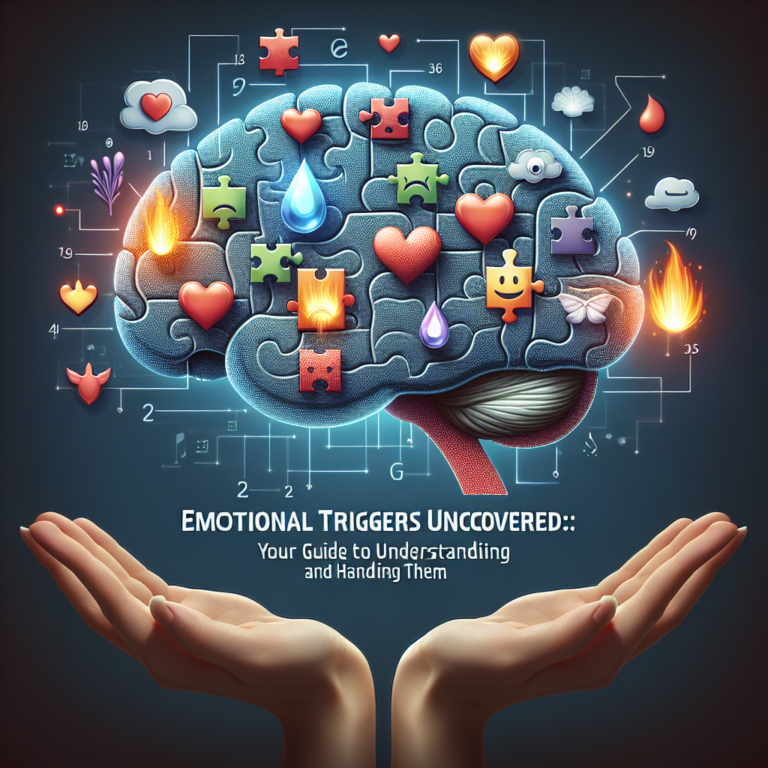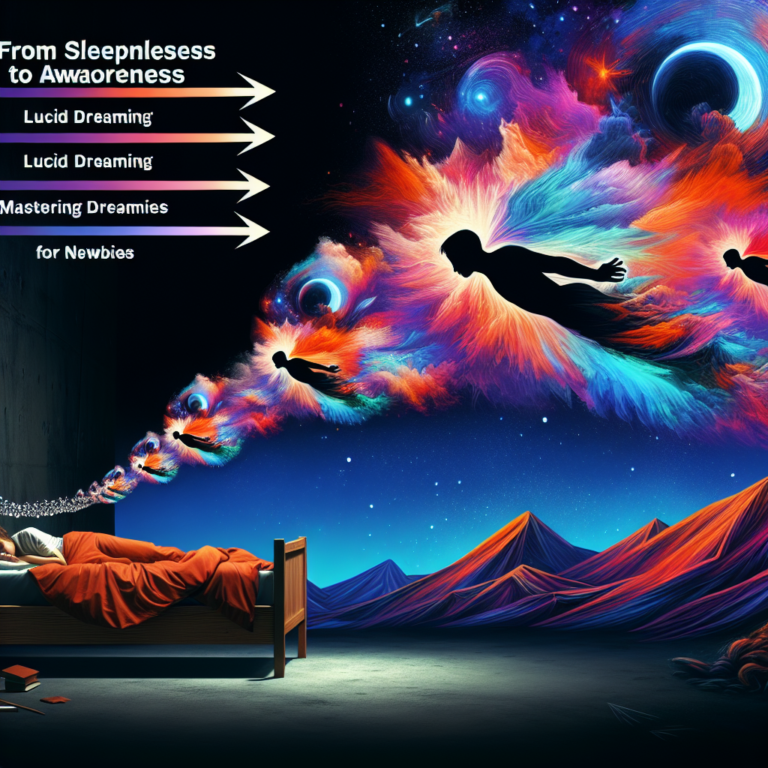
Living in a Pressure Cooker: The Long-term Health Implications of Chronic Stress
Introduction
In today’s fast-paced world, many of us find ourselves living in a pressure cooker, where the heat of our responsibilities, deadlines, and daily challenges can feel overwhelming. Chronic stress has become so commonplace that it often goes unnoticed, lurking beneath the surface and affecting our health in profound ways. Understanding the long-term implications of this slow-burning pressure is not only crucial for our wellbeing but also essential for leaders, employers, and families striving to create healthier environments.
Imagine waking up each day already feeling exhausted, your mind racing with thoughts of what you must accomplish versus what is realistically achievable. This constant state of anxiety dramatically alters both our physical and mental health. In this article, we will explore the serious implications of chronic stress on our bodies and minds, share real-world case studies, and offer actionable insights for reducing stress levels.
What is Chronic Stress?
Before diving into the long-term health implications, it’s vital to understand what chronic stress is. It arises from situations, demands, or relationships that feel persistently overwhelming and unmanageable. Unlike acute stress, which can be a natural response to immediate challenges, chronic stress is ongoing and persistent, often resulting from long-term pressures—be it job-related stress, financial problems, or personal relationships.
Case Study: The Impact of Workplace Pressure
Consider the case of Sarah, a marketing manager who worked in a high-pressure corporate environment. Her long work hours and constant email notifications led to sleepless nights, affecting her concentration and productivity. Over months of enduring this stress, Sarah began experiencing chronic headaches and anxiety, illustrating how chronic stress affects both mental and physical health.
The Biological Mechanisms of Stress
To understand the implications of living in a pressure cooker, one must recognize the biological mechanisms at play. When we experience stress, our bodies trigger the ‘fight or flight’ response, releasing hormones like cortisol and adrenaline. While these hormones are beneficial in short bursts, prolonged exposure can lead to serious health issues.
Table 1: The Effects of Prolonged Cortisol on the Body
| Health Issue | Description |
|---|---|
| Immune Dysfunction | Chronic cortisol suppresses the immune response. |
| Cardiovascular Problems | Elevated blood pressure and heart disease risk. |
| Digestive Issues | Stress can exacerbate conditions like IBS. |
| Mental Health Disorders | Increased risk of anxiety and depression. |
Long-term Health Implications of Chronic Stress
Living in a pressure cooker has far-reaching health implications. These can affect every aspect of life—from mental health to physical wellbeing.
1. Mental Health Risks
One of the most alarming consequences is the impact on mental health. Chronic stress can lead to anxiety disorders, depression, and a host of other psychological issues.
Case Study: Mark’s Journey through Anxiety
Mark, a university student, found it increasingly difficult to cope with academic pressures. After months of stress, he was diagnosed with an anxiety disorder. His journey illustrates the psychological toll of chronic stress and the importance of seeking help.
2. Heart Health
The heart is one of the organs most affected by prolonged stress. Chronic stress can lead to increased heart rate and blood pressure, significantly raising the risk of heart disease.
Case Study: Linda’s Heart Attack
Linda was a 45-year-old corporate executive who often worked late nights and weekends. Her chronic stress took a toll, leading to a heart attack at a relatively young age. Her story serves as a stark reminder of the serious consequences of neglecting mental wellness.
3. Metabolic Issues
Stress has been linked to conditions like obesity and diabetes. High cortisol levels can stimulate cravings for unhealthy foods and contribute to weight gain.
Table 2: The Relationship Between Stress and Weight Gain
| Stress Level | Cortisol Level | Food Cravings | Weight Gain Potential |
|---|---|---|---|
| Low | Low | Healthy Foods | Low |
| Moderate | Moderate | Sugary Foods & Carbohydrates | Moderate |
| High | High | High-calorie, fatty Foods | High |
4. Digestive Disorders
Chronic stress can disrupt digestive health, leading to conditions like Irritable Bowel Syndrome (IBS) and ulcers. Stress affects digestion and can cause significant discomfort.
Case Study: Jake’s IBS Diagnosis
Jake, a busy entrepreneur, began experiencing severe digestive issues due to his stress levels. His condition serves as a reminder of how mental health and physical health are intricately linked.
5. Impact on Relationships and Social Life
Living under constant stress can strain personal relationships. Communication becomes challenging, and connection with others can diminish. This isolation can further exacerbate feelings of loneliness and depression.
Case Study: Julie’s Social Withdrawal
Julie, feeling overwhelmed by work and family responsibilities, withdrew from friends and family. Her story highlights how chronic stress can alienate individuals, leading to a cycle of loneliness.
Strategies for Stress Management
While the implications of chronic stress are serious, there are proactive strategies individuals and organizations can implement to alleviate its burden.
1. Mindfulness and Meditation
Engaging in mindfulness practices can significantly reduce stress. Techniques like meditation, yoga, and deep-breathing exercises promote relaxation and foster a healthier mindset.
2. Physical Activity
Regular exercise is an effective way to combat stress. Whether it’s running, dancing, or even a brisk walk, physical activity releases endorphins, the body’s natural stress relievers.
3. Social Connections
Strengthening relationships can provide emotional support, making it easier to cope with stress. Engage with friends, family, or support groups to nurture relationships.
4. Proper Nutrition
A well-balanced diet supports overall health and aids in stress reduction. Foods rich in omega-3 fatty acids, antioxidants, and fiber can help improve mood and reduce anxiety.
5. Professional Help
If stress feels unmanageable, consulting a mental health professional can provide guidance and tools for coping.
Conclusion
Living in a pressure cooker affects not only our immediate wellbeing but also has long-term ramifications on our physical and mental health. From increased risk of chronic illnesses to mental health disorders, the implications of chronic stress are profound and often overlooked. Yet, by recognizing these risks and taking proactive steps towards stress management, we can create a healthier life for ourselves and those around us.
Taking time for self-care, nurturing relationships, and seeking help when needed are all critical components in breaking the cycle of chronic stress. Let’s choose to step out of the pressure cooker and embrace a more balanced and fulfilling life.
FAQs
1. What are the signs of chronic stress?
Chronic stress often manifests as fatigue, irritability, difficulty concentrating, and physical symptoms such as headaches or digestive issues.
2. Can chronic stress lead to serious health conditions?
Yes, prolonged stress is linked to a variety of serious health issues, including heart disease, diabetes, and mental health disorders.
3. How can I help someone dealing with chronic stress?
Offer your support by listening, suggesting professional help if necessary, and encouraging healthy stress-reducing activities like exercise or mindfulness.
4. Is stress always harmful?
Not necessarily. While chronic stress is harmful, acute stress responses can help motivate and focus individuals during critical moments.
5. How long does it take to recover from chronic stress?
Recovery time varies for each individual and depends on the severity of stress and the strategies implemented. Consistent self-care and professional support can significantly expedite the recovery process.
By illuminating the profound effects of living in a pressure cooker, we can inspire individuals to take charge of their stress and health, paving the way for a more vibrant future.

















